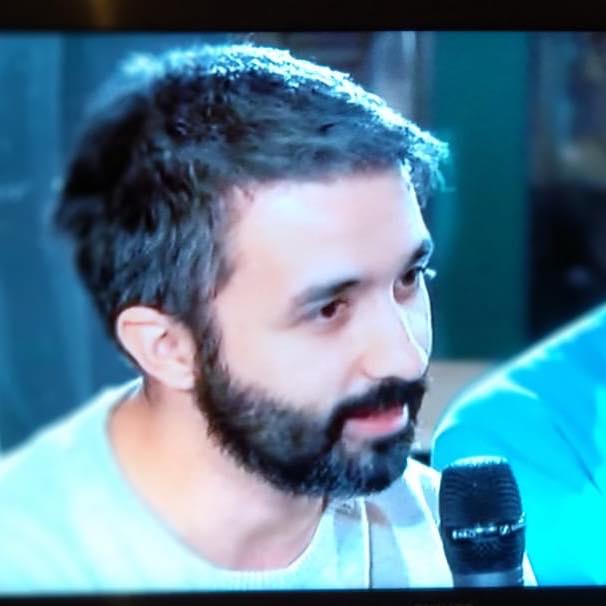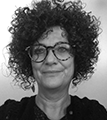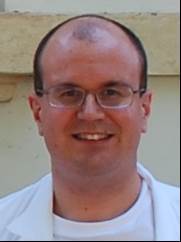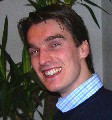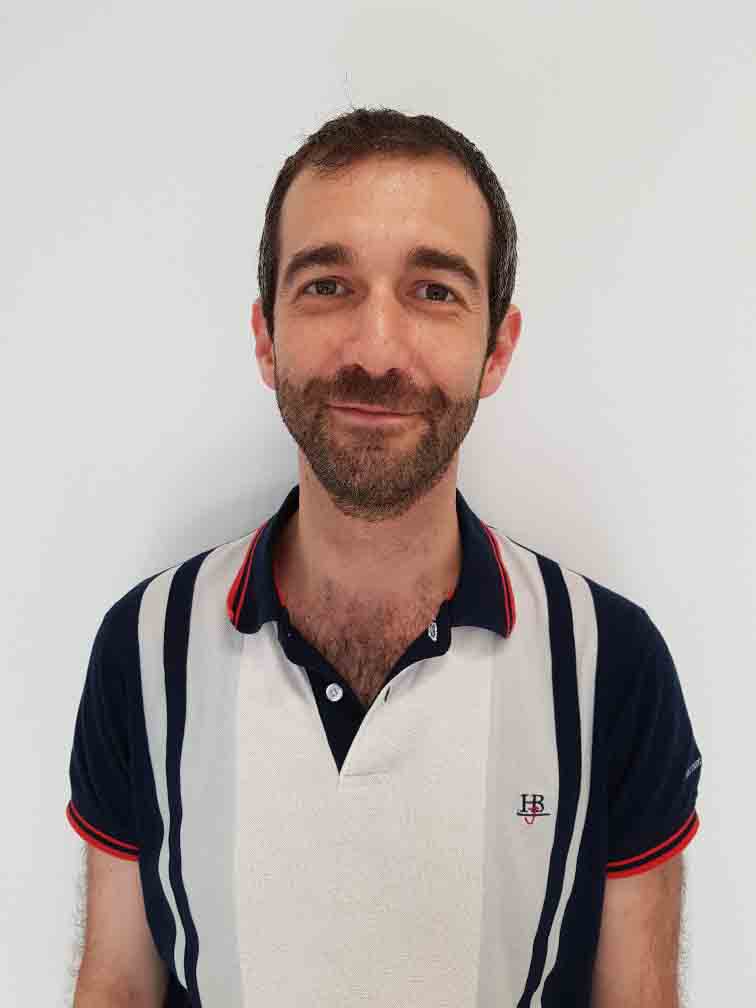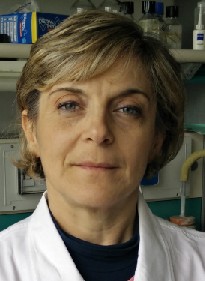Studiare
In questa sezione è possibile reperire le informazioni riguardanti l'organizzazione pratica del corso, lo svolgimento delle attività didattiche, le opportunità formative e i contatti utili durante tutto il percorso di studi, fino al conseguimento del titolo finale.
Calendario accademico
Il calendario accademico riporta le scadenze, gli adempimenti e i periodi rilevanti per la componente studentesca, personale docente e personale dell'Università. Sono inoltre indicate le festività e le chiusure ufficiali dell'Ateneo.
L’anno accademico inizia il 1° ottobre e termina il 30 settembre dell'anno successivo.
Calendario didattico
Il calendario didattico indica i periodi di svolgimento delle attività formative, di sessioni d'esami, di laurea e di chiusura per le festività.
| Periodo | Dal | Al |
|---|---|---|
| 1 SEMESTRE PROFESSIONI SANITARIE | 1-ott-2021 | 23-dic-2021 |
| 1° e 2° semestre (corsi annuali) PROFESSIONI SANITARIE | 1-ott-2021 | 30-set-2022 |
| 2 SEMESTRE PROFESSIONI SANITARIE | 10-gen-2022 | 30-set-2022 |
| Sessione | Dal | Al |
|---|---|---|
| 1^ SESSIONE A.A. 2020/2021 | 1-ott-2021 | 30-nov-2021 |
| 2^ SESSIONE A.A. 2020/2021 | 1-mar-2022 | 30-apr-2022 |
| Periodo | Dal | Al |
|---|---|---|
| Festa di Tutti i Santi | 1-nov-2021 | 1-nov-2021 |
| Festa dell'Immacolata Concezione | 8-dic-2021 | 8-dic-2021 |
| Festa della Liberazione | 25-apr-2022 | 25-apr-2022 |
| Festa della Repubblica | 2-giu-2022 | 2-giu-2022 |
Calendario esami
Gli appelli d'esame sono gestiti dalla Unità Operativa Segreteria Corsi di Studio Medicina.
Per consultazione e iscrizione agli appelli d'esame visita il sistema ESSE3.
Per problemi inerenti allo smarrimento della password di accesso ai servizi on-line si prega di rivolgersi al supporto informatico della Scuola o al servizio recupero credenziali
Per dubbi o domande leggi le risposte alle domande più frequenti F.A.Q. Iscrizione Esami
Docenti
 mariangelabassetti@gmail.com
mariangelabassetti@gmail.com
 anita.bevilacqua@apss.tn.it
anita.bevilacqua@apss.tn.it
 elena.bravi@apss.tn.it
elena.bravi@apss.tn.it
 cembrani@apss.tn.it
cembrani@apss.tn.it
 gabriele.chini@univr.it
gabriele.chini@univr.it
 dellai@tn.apss.tn.it
dellai@tn.apss.tn.it
 loredana.pancheri@univr.it
loredana.pancheri@univr.it
 marina.pecoraro@apss.tn.it
marina.pecoraro@apss.tn.it
 nicola.pelizzari@univr.it
nicola.pelizzari@univr.it
 elda.righi@univr.it
elda.righi@univr.it
 giuliano.rosani@univr.it
giuliano.rosani@univr.it
 cinzia.vivori@apss.tn.it
cinzia.vivori@apss.tn.it
Piano Didattico
Il piano didattico è l'elenco degli insegnamenti e delle altre attività formative che devono essere sostenute nel corso della propria carriera universitaria.
Selezionare il piano didattico in base all'anno accademico di iscrizione.
1° Anno
| Insegnamenti | Crediti | TAF | SSD |
|---|
Laboratori professionali (primo anno)
2° Anno Attivato nell'A.A. 2022/2023
| Insegnamenti | Crediti | TAF | SSD |
|---|
Laboratori professionali (secondo anno)
3° Anno Attivato nell'A.A. 2023/2024
| Insegnamenti | Crediti | TAF | SSD |
|---|
Laboratori professionali (terzo anno)
| Insegnamenti | Crediti | TAF | SSD |
|---|
Laboratori professionali (primo anno)
| Insegnamenti | Crediti | TAF | SSD |
|---|
Laboratori professionali (secondo anno)
| Insegnamenti | Crediti | TAF | SSD |
|---|
Laboratori professionali (terzo anno)
Legenda | Tipo Attività Formativa (TAF)
TAF (Tipologia Attività Formativa) Tutti gli insegnamenti e le attività sono classificate in diversi tipi di attività formativa, indicati da una lettera.
Infermieristica generale e metodologia applicata (2021/2022)
L'insegnamento è organizzato come segue:
Obiettivi formativi
L’insegnamento si focalizza sui fondamenti di base dell’infermieristica generale e clinica relativamente ai concetti di cura e prendersi cura della persona e della famiglia, ai principi deontologici che ispirano e orientano la pratica assistenziale. Si propone di fornire le basi concettuali, metodologiche per l’identificazione dei bisogni di assistenza infermieristica, la pianificazione degli interventi e la valutazione degli esiti. L’insegnamento è teso a far acquisire allo studentele competenze per procedere nella rilevazione di dati attraverso l’osservazione, l'intervista e l'esame obiettivo, nell’analisi e comprensione delle manifestazioni riferite dai pazienti. Fornisce le basi metodologiche per la valutazione di problemi o rischi anche attraverso l’utilizzo di scale o strumenti per prendere decisioni e proporre interventi di prevenzione, trattamento e monitoraggio rispetto ai bisogni e problemi della persona. Questo insegnamento si costruisce sulle conoscenze di anatomia e fisiologia umana. I contenuti sono collegati ai moduli di infermieristica del 2 e 3 anno, in particolare all’Infermieristica clinica medica e chirurgica e della cronicità, al modulo di Relazione di aiuto nei processi assistenziali e di Deontologia e regolamentazione dell’esercizio professionale. Questo insegnamento si integra con i Laboratori Professionali Med/45 previsti al 1° anno di corso (Tecniche di posizionamento e trasferimento della persona assistita, rilevazione dei parametri vitali, valutazione e trattamento delle lesioni da pressione, cura del corpo). MODULO INFERMIERISTICA GENERALE: Il corso introduce lo studente ai fondamenti di base dell’infermieristica generale e clinica relativamente ai concetti di salute, malattia, cura e prendersi cura della persona e della famiglia, ai principi deontologici che ispirano e orientano la pratica assistenziale. MODULO METODOLOGIA INFERMIERISTICA CLINICA: Il corso si propone di fornire conoscenze e competenze relative alla metodologia clinica per l’identificazione e gestione dei bisogni di assistenza infermieristica, con particolare riferimento all'utilizzo di metodi e strumenti di accertamento e monitoraggio, alla pianificazione degli interventi e alla valutazione degli esiti. Gli studenti acquisiranno queste competenze in merito a: stato nutrizionale e alterazioni (obesità, cachessia, malnutrizione); deambulazione, esercizio fisico e deficit di mobilità; parametri vitali, termoregolazione e alterazioni della temperatura corporea (febbre e ipotermia); cura del corpo (igiene del corpo e del cavo orale) e deficit della cura di sé. MODULO ASSISTENZA CHIRURGICA GENERALE: il corso è finalizzato all’apprendimento del metodo clinico e di contenuti di assistenza chirurgica preoperatoria, quali informazione preoperatoria e consenso all’intervento, valutazione del rischio operatorio e infettivo e preparazione fisica ai diversi tipi di intervento. Verranno affrontati gli aspetti fondamentali nella presa in carico nell’immeditato postoperatorio, quali vigilanza e monitoraggio, gestione della ferita e dei drenaggi, ripresa dell’alimentazione, ileus e mobilizzazione precoce .
Programma
------------------------
MM: INFERMIERISTICA GENERALE
------------------------
Le dimensioni di salute, benessere e malattia Esplorazione dell’idea di salute e di benessere Significato di determinante di salute, disuguaglianze fattori di rischio e live skills Le variabili che influenzano la salute, i comportamenti rispetto alla salute e stili di Vita Esplorazione dell’idea di malattia: Illness e disease Malattia acuta e malattia cronica Impatto della malattia sulla persona e sulla famiglia Il corpo nell’esperienza di salute e malattia Il “prendersi cura “ della persona e della famiglia nella pratica infermieristica e i principi dell’assistenza infermieristica Analisi del concetto di “caring” e delle sue componenti I principi dell’infermieristica: presenza, comfort, intimità, tocco procedurale ed empatico, la vigilanza La famiglia e il caregiving La professione infermieristica L’Infermieristica come professione: standard professionali e di competenza, il profilo dell’infermiere e il codice deontologico Il codice etico dello studente infermiere Responsabilità e ruoli professionali, integrazione nel team di cura Metodi delle cure infermieristiche Il processo assistenziale dall’accertamento alla valutazione dei risultati attesi Metodi dell’accertamento Alimentazione e principi di una sana alimentazione Basi di fisiologia e fisiopatologia dell’alimentazione e assorbimento dei principi nutrizionali Principi di una sana alimentazione Valutazione dello stato nutrizionale (abitudini alimentari, dati antropometrici, esami di laboratorio) e dell’idratazione della persona Gestione assistenziale della persona malnutrita (gradi di malnutrizione e interventi assistenziali) Valutazione della persona sovrappeso ed obesa e principali interventi assistenziali Principi per assistere una persona al pasto Fonte: Saiani L., Brugnolli A., (2014). Trattato di Cure Infermieristiche. Napoli: Casa Editrice Idelson Gnocchi, Sorbona Capitoli 4 - 1- 5, 6 - 18 Capitolo 1 Il significato del corpo nella salute e nell’esperienza di malattia tratto da: Zannini L. Il Corpo-Paziente – da oggetto delle cure a soggetto della relazione terapeutica Ed Franco Angeli 2004
------------------------
MM: METODOLOGIA CLINICA INFERMIERISTICA
------------------------
I principi di una buona igiene del sonno, gli effetti fisiologici del sonno, gli interventi per gestire la persona con disturbi del sonno (gambe senza riposo, apnee notturne, problemi di sonno nell’anziano, i fattori che ostacolano il sonno in ospedale (rumore negli ambienti di cura) I principi di una sana mobilità, esercizio fisico e le alterazioni. Definizioni di esercizio fisico, tolleranza, sedentarietà, mobilità. La gestione assistenziale del deficit di mobilità: i dati necessari per valutare lo stato di mobilità (esame obiettivo) e le sue alterazioni, in particolare nel deficit di immobilità nelle attività di vita quotidiana, gli interventi e le tecniche per mobilizzare il paziente (da sdraiato a seduto, da seduto in piedi, di deambulazione, posizioni a letto, principali ausili girello, bastone, stampella; il concetto di sindrome da immobilizzazione I principi nella misurazione dei segni vitali (pressione arteriosa, polso, frequenza respiratoria, pulsossimetria e temperatura corporea), modalità di misurazione, valori di normalità e definizione delle alterazioni. Le principali alterazioni della termoregolazione (iperpiressia, ipertermia ipotermia) e identificare gli interventi infermieristici alla persona con febbre. La prevenzione e trattamento delle lesioni da pressione Fisiopatologia delle ulcere da pressione Fattori patomeccanici che determinano insorgenza lesioni da pressioni (pressione, forze di taglio e frizione) Gestione assistenziale della persona a rischio di lesione da pressione (strumenti e modalità di valutazione del rischio di lesione da pressione, posizionamenti, scelta di presidi antidecubito…) Gestione assistenziale della persona con lesione da pressione (sistema di classificazione della lesione, principi base di trattamenti dei diversi tipi di lesione)
------------------------
MM: ASSISTENZA CHIRURGICA GENERALE
------------------------
Bibliografia
Modalità d'esame
------------------------
MM: INFERMIERISTICA GENERALE
------------------------
La valutazione del corso sarà effettuata sia con modalità scritta con quesiti aperti a breve risposta dove è richiesto di motivare dati, selezionare dati alterati e sostenerli, interventi assistenziali e motivarli utilizzando le fonti e i meccanismi fisiopatologici. Domande a test con scelta multipla, domande con risposta "a completamento" piccole situazioni con opzioni di scelta, analisi di storie di caring Può essere proposta anche la modalità orale, qualora lo studenti non superi per 2-3 volte la prova scritta. Il voto finale, qualora positivo, può contemplare anche elementi relativi alla partecipazione attiva durante le lezioni e alla aderenza ai mandati di pre-lettura del testo. I contenuti della valutazione sono riferiti alle tematiche: - Le dimensioni di salute, benessere e malattia - Il “prendersi cura “ della persona e della famiglia nella pratica infermieristica e i principi dell’assistenza infermieristica - La professione infermieristica - Metodi delle cure infermieristiche - Alimentazione e principi di una sana alimentazione
------------------------
MM: METODOLOGIA CLINICA INFERMIERISTICA
------------------------
La valutazione del corso sarà effettuata sia con modalità scritta con test a risposta multipla e risposta aperta. Il voto finale, qualora positivo, può contemplare anche elementi relativi alla partecipazione attiva durante le lezioni e alla aderenza ai mandati di pre-lettura del testo. Gli studenti possono decidere e comunicare prima dell’avvio dell’esame di sostenere 2 moduli a scelta. Il parziale è superato qualora lo studente dimostri un livello sufficiente in entrambi i moduli. L’esame complessivo d’Insegnamento, con i tre moduli, deve essere concluso entro i due appelli successivi al superamento dei primi due moduli.
------------------------
MM: ASSISTENZA CHIRURGICA GENERALE
------------------------
Prospettive
Avvisi degli insegnamenti e del corso di studio
Per la comunità studentesca
Se sei già iscritta/o a un corso di studio, puoi consultare tutti gli avvisi relativi al tuo corso di studi nella tua area riservata MyUnivr.
In questo portale potrai visualizzare informazioni, risorse e servizi utili che riguardano la tua carriera universitaria (libretto online, gestione della carriera Esse3, corsi e-learning, email istituzionale, modulistica di segreteria, procedure amministrative, ecc.).
Entra in MyUnivr con le tue credenziali GIA: solo così potrai ricevere notifica di tutti gli avvisi dei tuoi docenti e della tua segreteria via mail e a breve anche tramite l'app Univr.
Gestione carriere
Orario lezioni
Documenti
| Titolo | Info File |
|---|---|
|
|
pdf, it, 437 KB, 07/03/24 |
|
|
pdf, it, 457 KB, 16/04/24 |
|
|
pdf, it, 450 KB, 05/04/24 |
|
|
pdf, it, 628 KB, 08/01/24 |
|
|
pdf, it, 1453 KB, 07/02/24 |
Guida ai programmi degli insegnamenti
Guida ai programmi degli insegnamenti
Documenti
| Titolo | Info File |
|---|---|
|
|
pdf, it, 1594 KB, 12/12/22 |
|
|
pdf, it, 1310 KB, 02/09/21 |
Prova Finale
Per essere ammessi alla prova finale occorre avere conseguito tutti i crediti nelle attività formative previste dal piano degli studi, compresi quelli relativi all’attività di tirocinio. Alla preparazione della tesi sono assegnati 7 CFU.
La prova è organizzata, con decreto del Ministro dell'Istruzione, dell'Università e della Ricerca di concerto con il Ministro del Lavoro, della Salute e delle Politiche Sociali, in due sessioni definite a livello nazionale.
La prova finale, con valore di esame di Stato abilitante, si compone di:
- una prova pratica che consiste in un elaborato scritto strutturato, semi-strutturata o con domande aperte su casi/situazioni esemplificative della pratica professionale. La prova deve comprendere una selezione di quesiti di problem solving e di quesiti sulla presa di decisione nelle aree di competenza infermieristica.
- La redazione di un elaborato di tesi e sua dissertazione.
Le due diverse componenti della prova finale devono concorrere in egual misura alla determinazione del voto finale. In caso di valutazione insufficiente della prova pratica l’esame si interrompe e si ritiene non superato. La prova finale viene sospesa e va ripetuta interamente in una seduta successiva.
Il punteggio finale di Laurea è espresso in centodecimi con eventuale lode. Esso viene formato sommando la media ponderata dei voti conseguiti negli esami di profitto, rapportata a 110, con il punteggio ottenuto nella prova pratica (6 punti) e nella discussione della Tesi (parimenti fino ad un massimo di 6 punti)
La Commissione di Laurea potrà attribuire ulteriori punti anche in base a: presenza di eventuali lodi ottenute negli esami sostenuti; partecipazione progetto Erasmus 2 punti aggiuntivi; laurea entro i termini della durata normale del corso 1 punto
Lo studente avrà la supervisione di un docente del Corso di Laurea, detto Relatore, ed eventuali correlatori anche esterni al Corso di Laurea.
Scopo della tesi è quello di impegnare lo studente in un lavoro di formalizzazione, progettazione e di ricerca, che contribuisca sostanzialmente al completamento della sua formazione professionale e scientifica. Il contenuto della tesi deve essere inerente a tematiche o discipline strettamente correlate al profilo professionale.
La valutazione della tesi sarà basata sui seguenti criteri: livello di approfondimento del lavoro svolto, contributo critico del laureando, accuratezza della metodologia adottata per lo sviluppo della tematica.
È prevista la possibilità per lo studente di redigere l'elaborato in lingua inglese.
La scadenza per la presentazione della domanda di laurea e relativa documentazione, verrà indicata negli avvisi dello specifico Corso di Laurea
Documenti
| Titolo | Info File |
|---|---|
|
|
pdf, it, 242 KB, 19/01/24 |
|
|
pdf, it, 80 KB, 06/04/24 |
|
|
pdf, it, 43 KB, 06/04/24 |
|
|
pdf, it, 44 KB, 09/04/24 |
|
|
pdf, it, 148 KB, 06/04/24 |
|
|
pdf, it, 108 KB, 06/04/24 |
|
|
pdf, it, 115 KB, 06/04/24 |
|
|
pdf, it, 1487 KB, 18/02/22 |
|
|
pdf, it, 437 KB, 22/03/24 |
|
|
pdf, it, 957 KB, 22/03/24 |
|
|
pdf, it, 424 KB, 19/01/24 |
Linee guida per riconoscimento cfu
Lo studente che intende chiedere il riconoscimento di moduli o insegnamenti pregressi dovrà presentare domanda, entro il 30 novembre dell’anno accademico in corso, seguendo le indicazioni indicate al link seguente: https://www.univr.it/it/i-nostri-servizi/segreterie-studenti/gestione-carriere-studenti-medicina-e-chirurgia/riconoscimento-crediti-acquisiti-da-una-carriera-pregressa-medicina
Documenti
| Titolo | Info File |
|---|---|
|
|
pdf, it, 295 KB, 09/11/21 |
Area riservata studenti
Attività didattiche regime part-time
Modalità di richiesta
La domanda di iscrizione part-time può essere presentata all'inizio di ogni anno accademico e comunque entro il 30 novembre di ogni anno. Entro lo stesso termine, se necessario, lo studente potrà richiedere di tornare al regime full-time. Al link seguente la pagina del servizio https://www.univr.it/it/i-nostri-servizi/segreterie-studenti/flessibilita-nella-frequenza-dei-corsi/possibilita-di-iscrizione-part-time-e-ripristino-full-time
Una volta inviata la domanda, lo studente concorda in via preventiva con il Coordinatore della didattica professionale (CDP), il piano di studi che intende perseguire nel periodo di part-time compilando il modulo in allegato
Documenti
| Titolo | Info File |
|---|---|
|
|
octet-stream, it, 1309 KB, 21/10/22 |
Appelli d'esame
Appelli d'esame
Documenti
| Titolo | Info File |
|---|---|
|
|
pdf, it, 429 KB, 17/04/24 |
|
|
pdf, it, 2762 KB, 15/12/22 |
Tirocinio Professionalizzante
Tirocinio Professionalizzante
Attività Seminariali e a scelta dello studente
Attività Seminariali e a scelta dello studente
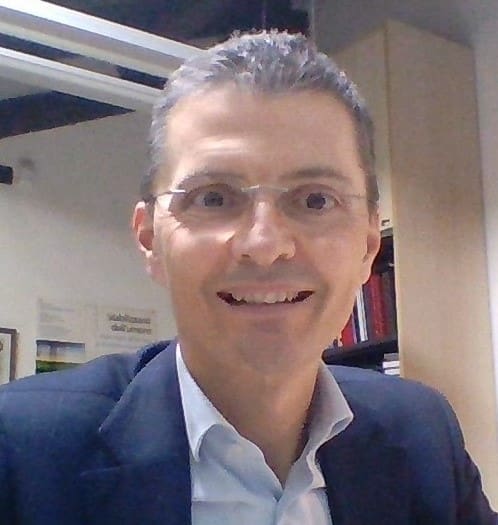
 +39 0458126418
+39 0458126418



